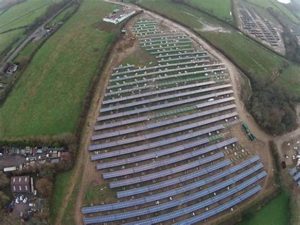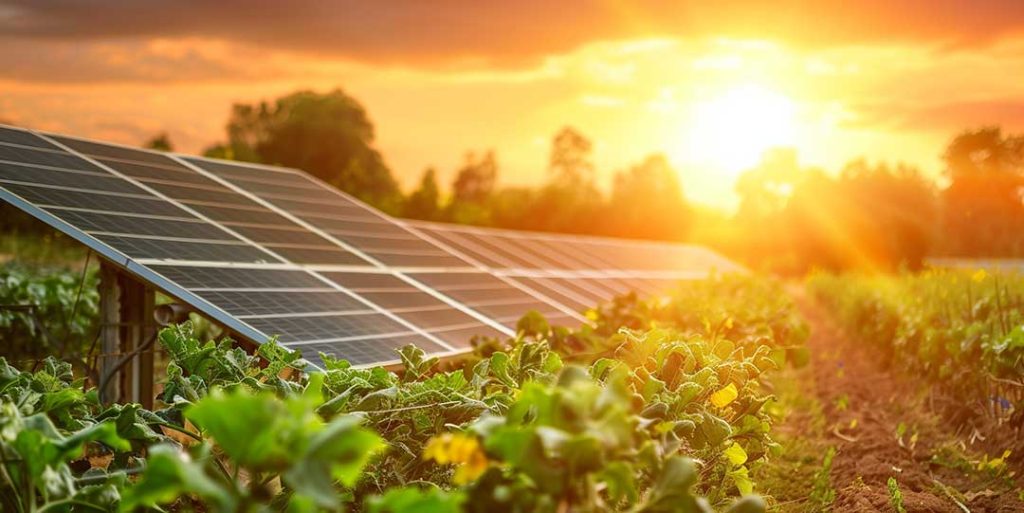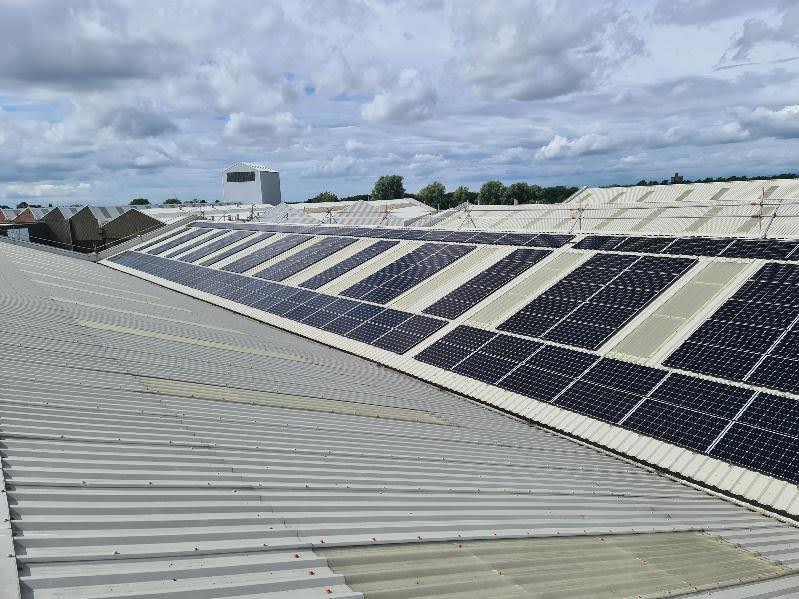Additional Revenue Stream
Operating a solar farm on their land can provide farmers with an additional and steady revenue stream.
This can be particularly beneficial during seasons or years when agricultural yields are low due to factors such as weather conditions or market fluctuations.
Farms can generate incomes for the landowner in the region of £10,000 per acre for 25 years, given that a minimum of 25 acres is required.
This substantial and reliable source of income can support farmers in maintaining financial stability, even when traditional farming revenues are unpredictable.
Diversification of Income
By diversifying their income sources, farmers can mitigate risks associated with fluctuations in crop prices, pest infestations, or other agricultural challenges.
Solar farming provides a stable source of income that is not subject to the same volatility as traditional farming.
This diversification can safeguard farmers against the uncertainties inherent in agricultural markets, ensuring a more resilient financial foundation.
Utilisation of Unproductive Land
Solar farms can be installed on marginal or less productive land that may not be suitable for intensive agricultural use.
This allows farmers to derive value from land that might otherwise lie fallow or underutilised.
Utilising these areas for solar energy production maximises the utility of the land, turning otherwise unprofitable spaces into productive assets.

Environmental Benefits
Solar energy is a clean, renewable energy source that produces electricity without emitting greenhouse gases or other pollutants associated with fossil fuels.
By hosting a solar farm, farmers can contribute to mitigating climate change and reducing their carbon footprint.
This environmental stewardship can enhance the sustainability credentials of the farming operation, appealing to environmentally conscious consumers and stakeholders.
Land Preservation
Installing solar panels on agricultural land can help preserve it from being converted into non-agricultural uses such as urban development or industrial facilities.
This can be particularly important for maintaining the agricultural character of rural areas and preserving farmland for future generations.
Solar farming ensures that the land remains in agricultural use, albeit for energy production, protecting it from permanent alteration and degradation.
Enhanced Energy Security
By generating electricity on-site through solar power, farmers can reduce their dependence on the grid and potentially lower their energy costs over the long term.
This can provide greater energy security, especially in rural areas where grid reliability may be lower.
Self-generated renewable energy can also shield farmers from energy price volatility and supply disruptions, ensuring more predictable and manageable energy costs.
Community Benefits
Solar farms can also provide benefits to the surrounding community by creating local jobs during the construction and maintenance phases, generating tax revenue for local governments, and contributing to the overall development of renewable energy infrastructure.
These projects can stimulate local economies, support public services through increased tax revenues, and demonstrate community leadership in renewable energy adoption.

Educational Opportunities
Integrating solar farming into traditional agricultural practices can also offer educational opportunities for local schools and community groups.
By hosting site visits and workshops, farmers can raise awareness about renewable energy and sustainable farming practices.
This educational outreach can foster a greater understanding of the benefits of solar energy and inspire future generations to pursue careers in sustainable agriculture and renewable energy.
Technological Advancements
The adoption of solar farms can drive technological advancements and innovation in the agricultural sector.
Farmers may have the opportunity to integrate cutting-edge solar technologies and energy storage solutions, enhancing the efficiency and effectiveness of their operations.
Embracing these technologies can position farmers as leaders in the adoption of advanced agricultural practices.
Policy Incentives
Governments often provide incentives and subsidies for renewable energy projects, including solar farms. By capitalising on these incentives, farmers can reduce the initial investment costs and improve the financial viability of their solar projects.
These policy supports can make solar farming an even more attractive and feasible option for landowners.
Overall, integrating solar farming into traditional agricultural practices offers numerous economic, environmental, and social advantages.
It provides a compelling option for landowners looking to diversify their income, contribute to sustainable development, and support the transition to a greener energy future.
The combination of financial benefits, environmental stewardship, and community impact makes solar farming a smart and strategic choice for forward-thinking farmers and landowners.





